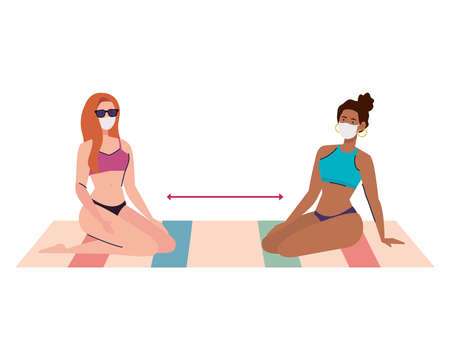Introduction: The British Sun Dilemma
When you think of the UK, endless sunshine probably isn’t the first thing that springs to mind. With our famously unpredictable weather—one minute it’s drizzling, the next it’s overcast—it’s no surprise that many Brits overlook the importance of sun protection. There’s a common belief that sunburn is something reserved for Mediterranean holidays or rare heatwaves, not everyday life in Manchester or Edinburgh. But here’s the truth: even on cloudy days, those sneaky UV rays can do their damage. In this article, we’ll debunk some myths and get to grips with why daily sun protection is essential, even under grey British skies. Whether you’re off for a quick stroll to the shops or spending your Saturday at a football match, understanding how and when to protect your skin is just as vital here as it is anywhere else in the world.
Common Myths About Sun Exposure in the UK
When it comes to sun protection in Britain, there are plenty of misconceptions floating about—some of which can leave our skin at risk without us even realising. Let’s set the record straight on some of the most widespread myths I hear from mates, family, and even blokes at the gym.
Myth 1: “You Can’t Get Sunburnt on Cloudy Days”
This is a classic one. Just because the British weather is famous for its clouds and drizzle doesn’t mean you’re safe from UV damage. In fact, up to 80% of UV rays can pass through cloud cover. You might not feel the heat or see direct sunlight, but those rays are still doing their work. So next time you head out—even if it’s looking a bit grey—don’t skip your SPF.
Myth 2: “Sun Protection Is Only for Holidays Abroad”
This is another biggie. Many of us only think about suncream when we’re packing for Spain or Greece, but UV levels in the UK can be surprisingly high, especially between May and September. Even during a day out in Brighton or a walk through Hyde Park, your skin needs protection. The risk isn’t reserved for tropical climates!
Quick Comparison: UK vs. Holiday Destinations
| Location | Peak UV Index (Summer) | Typical Sun Protection Behaviour |
|---|---|---|
| UK (London) | 6-7 | Sunscreen often forgotten unless very hot |
| Spain (Madrid) | 9-10 | Sunscreen used regularly by tourists |
Takeaway:
The numbers might be higher abroad, but a UV index of 6 or above means you should definitely be protecting your skin here at home too.
![]()
3. The Truth: UV Levels and Skin Damage
Many Brits believe that our famously overcast weather means we’re not at risk from the sun, but this is far from the truth. Harmful UV rays easily penetrate clouds, meaning you can still get sunburnt on a grey day in Manchester or Edinburgh. In fact, up to 80% of UV rays pass through cloud cover, catching many people off guard when they’re out and about without protection.
British skin types—often fair and prone to burning—are particularly vulnerable. Years of inconsistent sunshine have left most of us with less melanin, the natural pigment that offers some defence against UV damage. This makes regular protection crucial, even if you don’t feel the sun’s heat.
| Weather Condition | UV Exposure Risk |
|---|---|
| Bright Sun | High |
| Cloudy/Overcast | Moderate-High |
| Rainy | Low-Moderate |
Don’t be fooled by cool breezes or drizzle either; UV rays are present year-round. According to NHS guidelines, if your shadow is shorter than you are—typically between 11am and 3pm—the sun is strong enough to cause damage. For those of us with lighter skin tones, even short exposures add up over time, increasing risks of premature ageing and skin cancer. So next time you head out, remember it’s not just Spanish beaches where sun protection matters—it’s just as important right here in Blighty.
4. Choosing the Right Sun Protection
When it comes to sun protection in the UK, selecting the right product can be a bit of a minefield. The unpredictable weather and often cloudy skies make many of us underestimate the need for daily SPF. However, UVA rays can penetrate clouds and glass, so sun protection is crucial all year round—not just during those rare heatwaves. Here’s how to navigate your choices for effective protection.
Understanding SPF: What Do Those Numbers Really Mean?
SPF, or Sun Protection Factor, measures how well a sunscreen protects your skin from UVB rays—the type responsible for sunburn and contributing to skin cancer. In the UK, dermatologists generally recommend using at least SPF 30 for daily wear. For outdoor activities or especially sunny days (yes, they do exist here!), opt for SPF 50.
| SPF Rating | UVB Protection (%) | Recommended Use |
|---|---|---|
| 15 | 93% | Minimal exposure, not ideal for extended time outdoors |
| 30 | 97% | Daily use, typical British weather |
| 50 | 98% | Outdoor sports, holidays, sensitive skin |
Chemical vs Physical Sunscreens: Which One Suits You?
Sunscreens come in two main types—chemical and physical (sometimes called mineral). Chemical sunscreens absorb UV rays and transform them into heat, while physical sunscreens sit on top of the skin and reflect UV rays. If you have sensitive or reactive skin, physical sunscreens (containing zinc oxide or titanium dioxide) tend to be gentler and are less likely to cause irritation. Chemical sunscreens are usually lighter in texture and less likely to leave a white cast, making them popular for daily use under makeup.
| Type | Main Ingredients | Pros | Cons |
|---|---|---|---|
| Chemical | Avobenzone, Octocrylene etc. | No white cast, lightweight feel, easily absorbed | May irritate sensitive skin; can sting eyes |
| Physical (Mineral) | Zinc oxide, Titanium dioxide | Gentle on skin; works instantly; good for sensitive types | Tends to leave a white cast; thicker texture |
UK-Specific Sun Protection Recommendations
The British market offers plenty of excellent options suited to local needs. Boots Soltan range is widely available and offers reliable broad-spectrum protection—great for families. For those who prefer mineral formulas, look out for brands like Green People or La Roche-Posay Anthelios Mineral One. If you want something ultra-light that fits seamlessly into your morning routine, Garnier Ambre Solaire’s Sensitive Advanced Fluid is a solid pick—it’s non-greasy and perfect under a shirt collar or suit jacket. Remember to reapply every two hours if you’re outside, even if it looks cloudy.
Pro Tip:
If you’re commuting on the Tube or working by a window, don’t skip SPF! UVA rays penetrate glass and can contribute to premature ageing even on overcast days in London.
Personal Experience:
I’ve tried dozens of SPFs over the years and found that lighter formulas work best for my combination skin—especially when paired with my daily moisturiser. Don’t be afraid to try travel-sized bottles first; what works in humid Manchester might not suit drier Edinburgh air!
5. How to Build Sun Protection Into Your Routine
When you think about sun protection, you might imagine sizzling summer days or holidays on the Med. But in the UK, where the weather is famously unpredictable, integrating sun care into your daily routine can feel a bit odd – yet it’s absolutely essential. Here are some straightforward tips for blokes who want to look after their skin without making life complicated.
Everyday Sun Care Tips for Men
- Start with Moisturiser + SPF: Swap your regular face moisturiser for one with at least SPF 30. Many products are lightweight and non-greasy, so you won’t even notice a difference – except in your skin’s health.
- Sunscreen Isn’t Just for Holidays: Even if it’s cloudy or drizzling (as it often is), up to 80% of UV rays can penetrate clouds. Make SPF part of your morning routine, just like brushing your teeth.
- Lip Balm Matters: Don’t forget your lips – pick up a lip balm with SPF for all-round protection.
- Accessorise Smartly: Sunglasses and a cap aren’t just for style points; they give extra defence against those sneaky UV rays, especially during footy matches or a stroll down the high street.
Sun Protection Made Simple: A Quick Routine
| Step | Product | Tip |
|---|---|---|
| 1 | Cleanser | Wash off grime before applying anything else. |
| 2 | Moisturiser with SPF 30+ | Apply evenly to face and neck every morning. |
| 3 | Lip Balm with SPF | A quick swipe does the trick. |
| 4 | Sunscreen (if outdoors) | Cover exposed areas like ears, arms, and back of neck. |
Staying Protected During Classic UK Weather
If you’re heading out for a run along the Thames or spending Saturday at the pub garden, reapply sunscreen every couple of hours—especially if you’re sweating or caught in a shower. Always keep a travel-sized tube in your bag or car. With these simple swaps and habits, you’ll be sorted whatever the British weather throws at you.
6. Sun Protection for Different Activities
In the UK, sun protection isn’t just for those rare beach days in Cornwall or Brighton. Our daily routines and weekend plans expose us to UV rays more often than we think, even if the sky looks gloomy. Here’s some tailored advice for keeping your skin healthy—whether you’re dashing to the office, having a kickabout with your mates, soaking up a pint in the pub garden, or trekking through the Lake District.
Sun Protection by Activity
| Activity | Main Risks | Best Practices |
|---|---|---|
| Commute (walking/cycling) | Unexpected exposure during cloudy mornings or late afternoons | Apply SPF 30+ before leaving home, especially on face, neck, and hands. Keep a travel-sized sunscreen in your bag for top-ups. |
| Footie (football outdoors) | Sweat can wash off sunscreen; long exposure during matches | Choose water-resistant sunscreen; reapply at halftime. Don’t forget ears and back of neck. |
| Pub Garden Weekends | Extended time outdoors, sometimes without shade | Opt for broad-spectrum SPF 30+, wear sunglasses and a cap. Sit under an umbrella if possible. |
| Hiking (Lake District/Scottish Highlands) | High altitude increases UV intensity; wind can mask sunburn | Layer up with SPF 50 on exposed skin, including lips. Wear long sleeves, hat, and sunglasses. Reapply every two hours. |
The Local Angle: Why It Matters in the UK
You might not associate the UK’s famously unpredictable weather with sunburn risk, but UV rays penetrate clouds easily. Even on overcast days, about 80% of UV rays reach your skin—so don’t skip protection because it “doesn’t feel that sunny”. The British love for spontaneous outdoor plans means it pays to keep suncream handy year-round.
Pro Tip:
If you’re hitting the pub after work or a match, stash a small bottle of SPF in your jacket pocket or kit bag. It’s as essential as your Oyster card or contactless payment!
Your Skin Will Thank You
No matter your routine, consistent sun protection is key to looking sharp and feeling good. Make it part of your everyday essentials—you’ll dodge premature ageing and keep your skin healthy enough to handle whatever British weather throws at you.
7. Final Thoughts: Changing Attitudes Toward Sun Care
When it comes to sun protection, British culture has traditionally been a bit relaxed—let’s face it, our weather doesn’t exactly scream “sunburn risk.” But as we’ve uncovered, UV exposure is still a genuine concern, even under cloudy skies. There’s a real need for a cultural shift: sun care shouldn’t be seen as something only for beach holidays or the height of summer; it should become part of our everyday routines, much like brushing our teeth or grabbing a cuppa in the morning.
Leading by Example: Men and Daily Sun Protection
For blokes especially, there’s an opportunity to step up and set the standard. Historically, men in the UK have been less likely to prioritise skincare, let alone sun protection. It’s time we challenge those old stereotypes and show that taking care of your skin is just good sense—not vanity. Whether you’re heading out for a round of golf, walking the dog, or simply commuting to work, applying sunscreen (and reapplying when needed) should be as routine as tying your shoelaces.
How Can We Shift Attitudes?
| Current Attitude | Needed Change |
|---|---|
| Sun cream is only for holidays | Daily use regardless of season or weather |
| Skincare is “unmanly” | Self-care is smart and responsible |
| Cloudy days mean no risk | UV can penetrate clouds—protection is always wise |
Encouragement for Everyday Action
If we want to make lasting changes in how we approach sun protection in the UK, it starts with small habits and honest conversations. Talk about sun care with your mates; keep a bottle of SPF by the front door; invest in stylish hats or sunglasses that you’ll actually want to wear. And if you’re a dad, uncle, coach, or mentor—lead by example so the next generation grows up seeing daily sun protection as second nature.
Ultimately, changing attitudes isn’t about guilt-tripping or fearmongering. It’s about recognising that looking after your skin is part of looking after yourself. Let’s make sun care as British as a Sunday roast—and inspire others to do the same.


